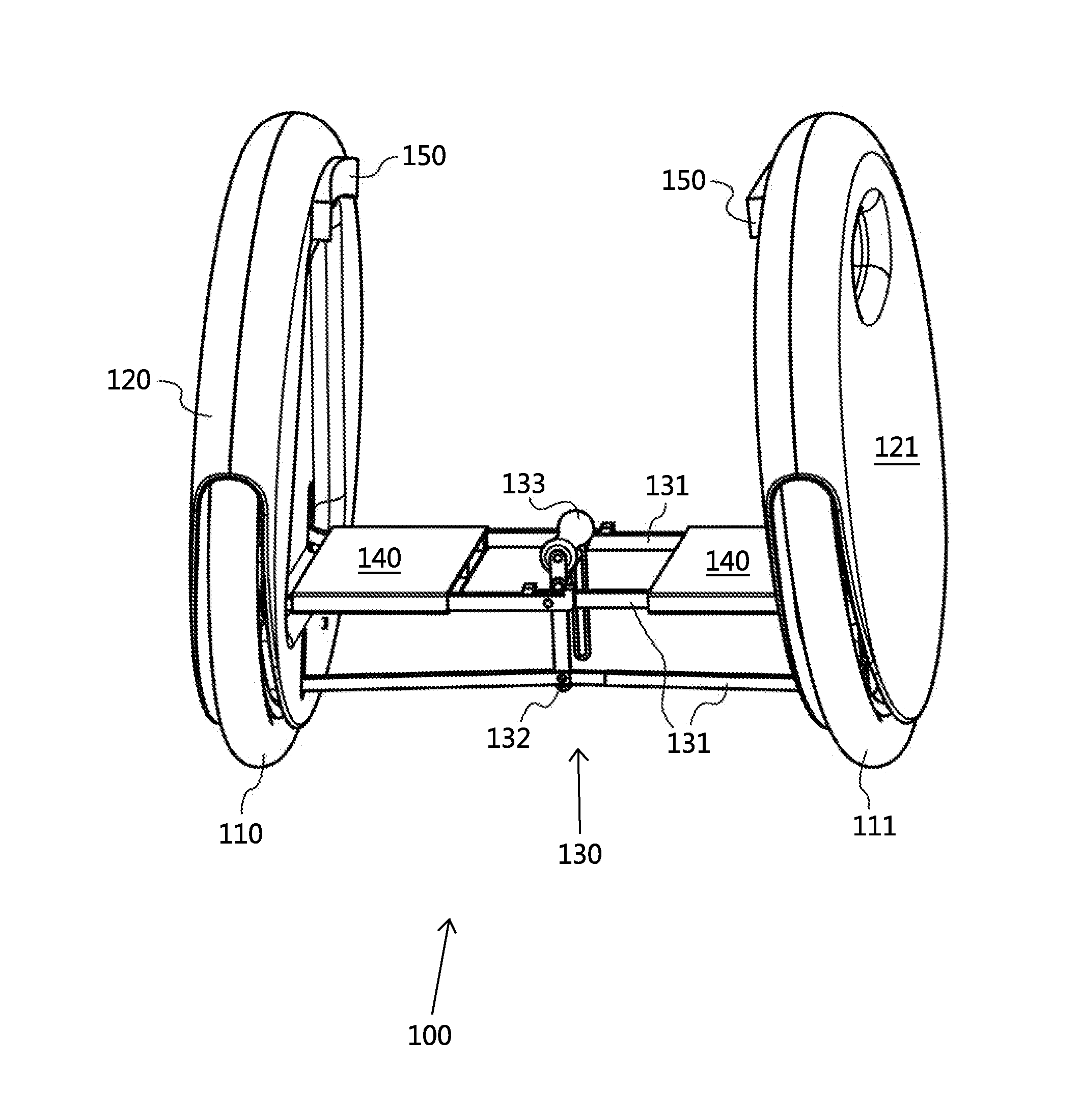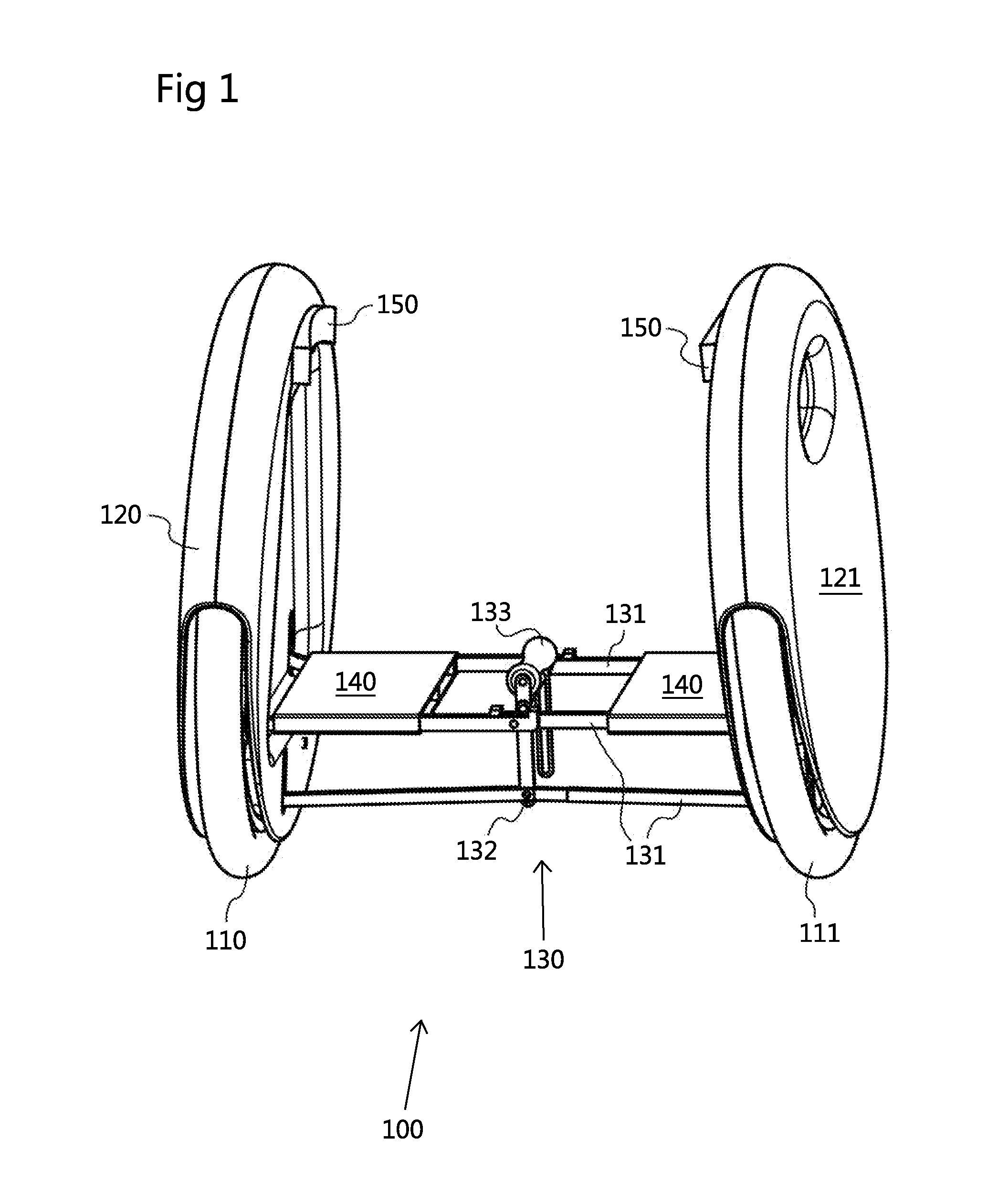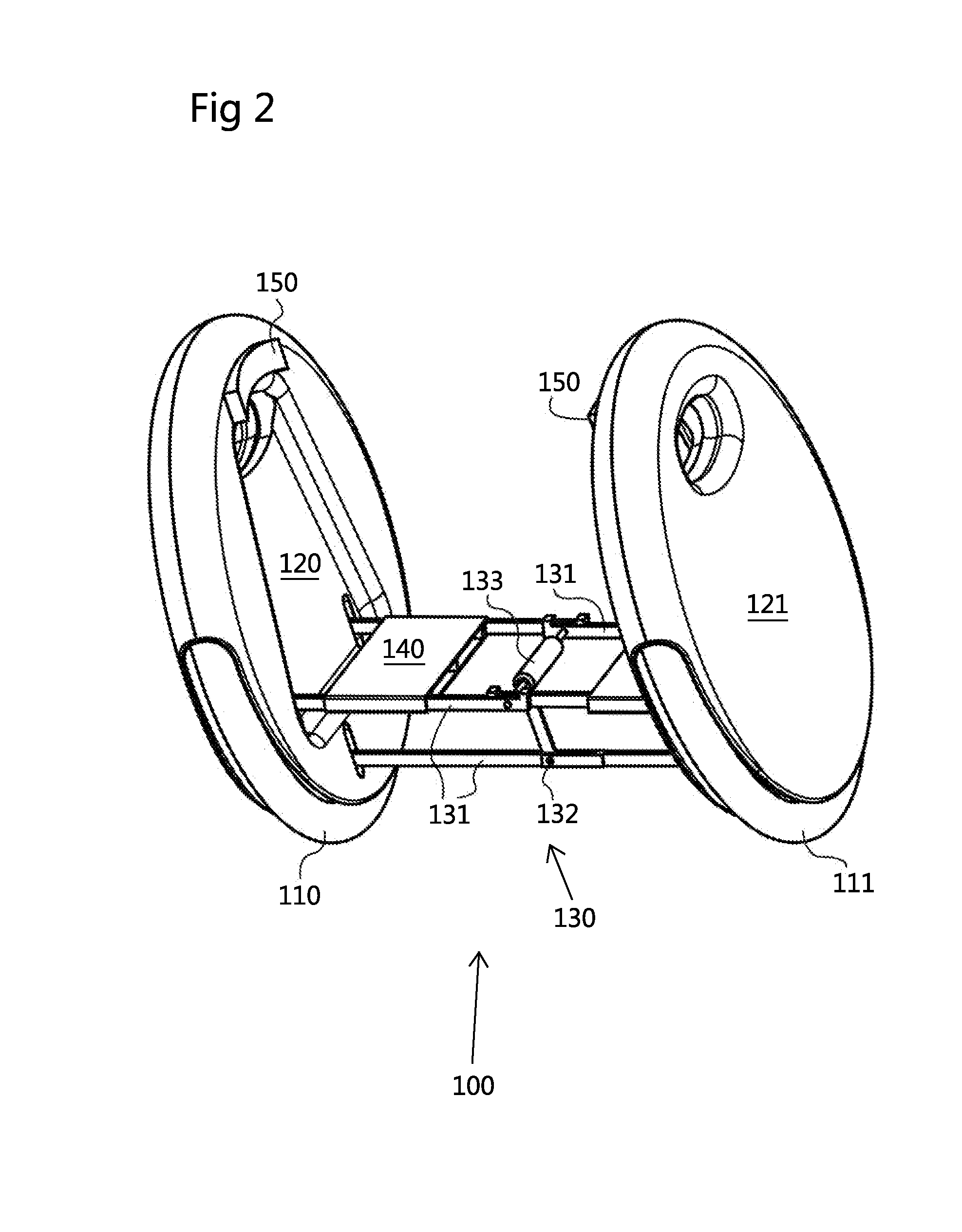Two-wheeled self-balancing motorized personal vehicle with tilting wheels
a self-balancing, motorized personal vehicle technology, applied in vehicles, bicycles, skateboards, etc., can solve the problems of unsupported riding stance, unfavorable normal people's comfort, and difficulty in keeping ankles and knees stable, so as to improve the stability and ease of use of the vehicle, the effect of reducing friction
- Summary
- Abstract
- Description
- Claims
- Application Information
AI Technical Summary
Benefits of technology
Problems solved by technology
Method used
Image
Examples
Embodiment Construction
[0015]Referring to FIG. 1, a perspective view of a personal vehicle in accordance with the present invention is shown. Vehicle 100 comprises two wheels 110 and 111, each respectively connected to a frame 120 and 121; a linking structure 130 coupled at one end to frame 120 and at the other end to frame 121, for connecting the two frames; two foot support surfaces 140 positioned between wheels 110 and 111 for a person to stand on; and a handle for carrying vehicle 110, coupled to linking structure 130. Wheels 110 and 111 are arranged opposite from each other, but do not share a common axle, and are therefore independently rotatable and capable of spinning at different speeds and / or in opposite directions. The wheels may be of a wide range of sizes, but those shown in FIG. 1 are relatively large, having a diameter comparable to the length of an adult person's lower leg. Each of wheels 110 and 111 is respectively coupled to some kind of frame structure 120 and 121, which can be implemen...
PUM
 Login to View More
Login to View More Abstract
Description
Claims
Application Information
 Login to View More
Login to View More - R&D
- Intellectual Property
- Life Sciences
- Materials
- Tech Scout
- Unparalleled Data Quality
- Higher Quality Content
- 60% Fewer Hallucinations
Browse by: Latest US Patents, China's latest patents, Technical Efficacy Thesaurus, Application Domain, Technology Topic, Popular Technical Reports.
© 2025 PatSnap. All rights reserved.Legal|Privacy policy|Modern Slavery Act Transparency Statement|Sitemap|About US| Contact US: help@patsnap.com



